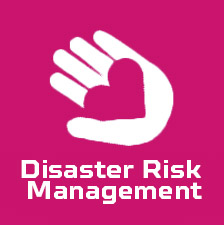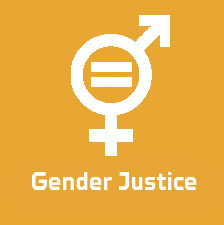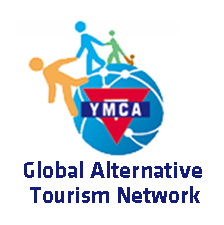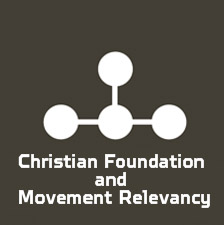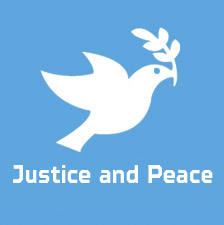What We Do
Reflection on Green Ambassadors Training 2023
Last Updated (Friday, 30 June 2023 14:20)
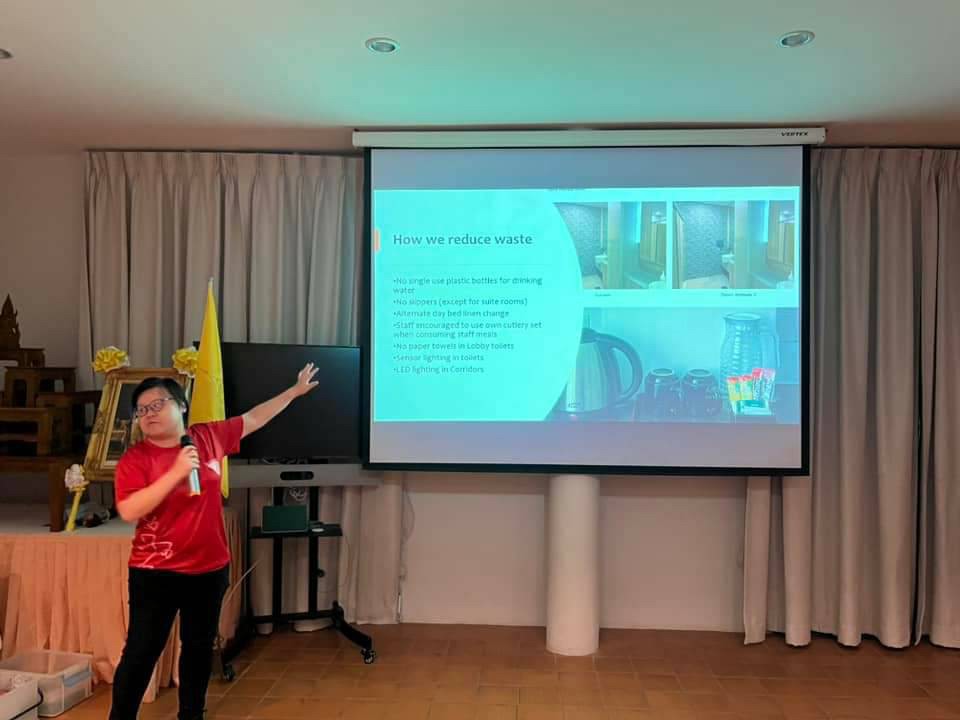 |
| ↑ Jasmine Lim, one of the participants of the Green Ambassadors Training last May 2023 |
The Green Ambassadors Training held at Chiangmai provided a holistic training approach that allowed us to learn from one another the different perspectives in different countries and to be able to see and experience through the meaningful visits to Doi Inthanon National Park, Mae-Jo University, Ban Rai Dong Village, and Sao Hin YMCA.
Particularly in our 5-day training, we learned from the participants who represented their respective schools and local YMCAs about how they tackle climate change in their countries and the education approach where they impart skills and knowledge to the younger generation.
During the Doi Inthanon visit, we had the opportunity to see and understand the Royal Project and the strong support from the Thai government towards the farmers, together resulting in a deeper understanding of the farm-to-table concept.
Visiting the highest spot on the mountain and the forest provided us a time to connect deeper with nature through our different senses, which are sight, sound, smell, and touch, and to reflect in the serene environment.
The visit to the university also brought us another perspective of how we can make use of renewable resources such as sunlight and the wind energy to generate electricity rather than the traditional methods which are harmful for the environment.
At Bai Rai Dong Village, we had the opportunity to help build the check dams and plant trees. It was an enriching experience for me to be reminded that we are stewards of God’s creation and there is a need to preserve nature so that our future generations are able to enjoy the goodness of His creation.
As for the visit to Sao Hin YMCA, I was thankful for being able to visit the learning centre where much knowledge has been imparted from the facilitators. This experience triggered the sensitivity to the urgency of climate change issues.
The 5-day training was impactful, enriching, and meaningful. It provided us the opportunity to brainstorm and come up with the action plans that we could bring back to our local YMCAs and schools. If we try to do it alone, there is only how much we can do. But if we work together, the impact will be greater.
By Jasmine Lim
Green Ambassador, May 2023
Metropolitan YMCA of Singapore
‘Time for Climate Action Towards YMCA Vision 2030’ - Green Ambassadors Training 2023
Last Updated (Wednesday, 31 May 2023 11:36)
Around thirty-five participants from the YMCAs of Malaysia, Myanmar, Philippines, Singapore, and Thailand met in Chiangmai, Thailand last May 22-27, 2023 to learn about climate change and its impact to people and communities; to engage in dialogue on enhancing ‘Green Ambassadors’ capacity for environment and climate change action to secure net zero by 2030 to keep global temperature 1.5 degrees within reach; to share good practices on carbon emission reduction and other green project; and to strengthen cooperation, network and green movement towards a Greener YMCA and communities. The training was also joined by the Y Green Schools from Thailand and Laos as partner schools of YMCA of So Hin YMCA in its effort to combat climate change.
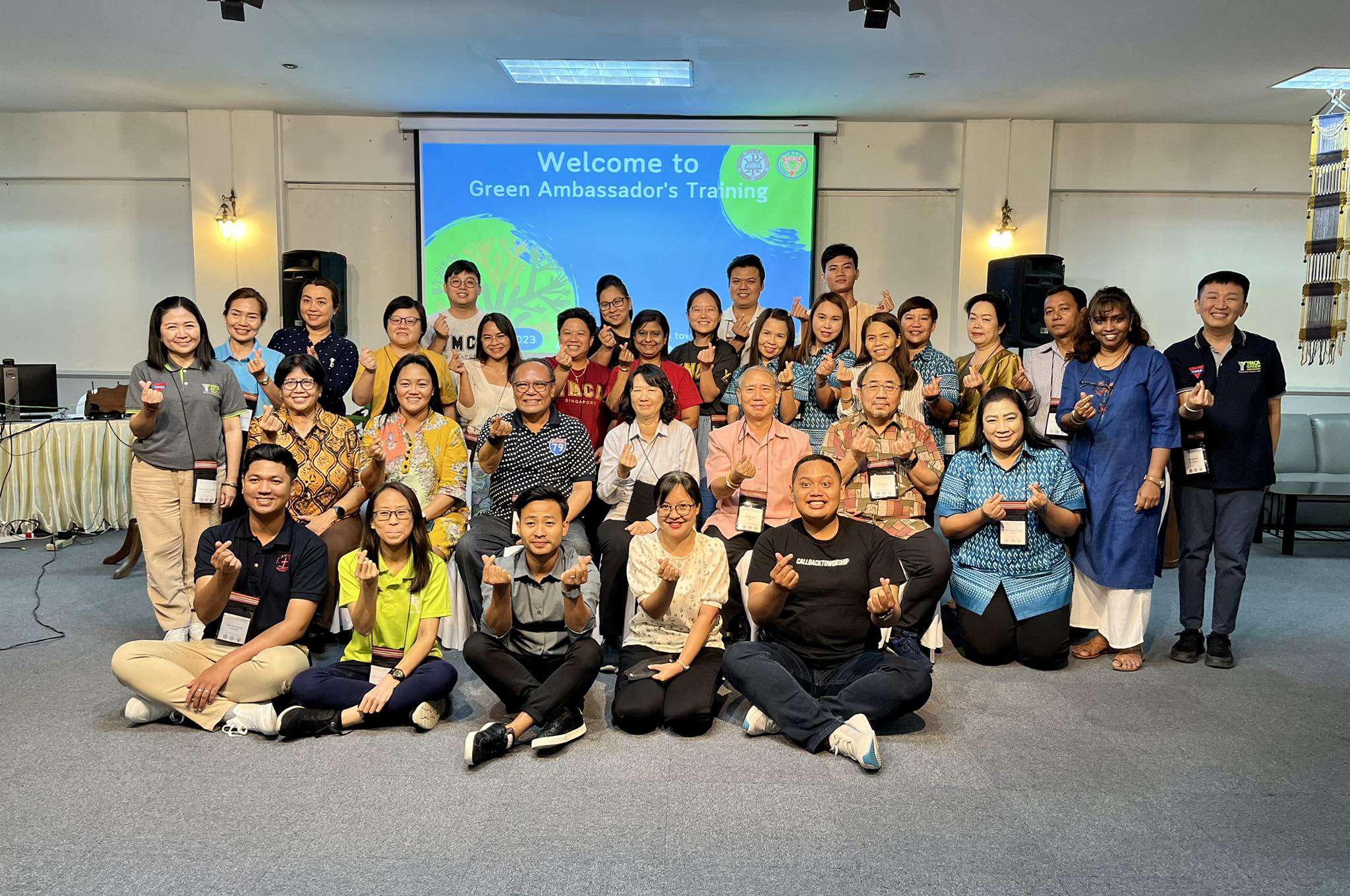 |
| ↑ Participants during the opening session |
The training included key presentation by Colin Lambie, APAY Green Team Member on the current climate change situation in the Asia and Pacific region and how governments are failing to limit warming to 2C or preferably 1.5C. He emphasized that YMCAs and like organisations must ‘pick up the slack’ and make up for lack of action by governments through mitigation and adaptation actions. He also reiterated the Mandate of the 20th APAY General Assembly in Japan that the YMCAs in the region commit to reducing the carbon emissions and taking effective steps to become carbon neutral by 2030. In his presentation, he highlighted the steps on how to become zero net carbon by 2030. It also incorporated case studies from Green Ambassador graduates and Green Team members who have successfully implemented climate action in their respective YMCAs. The case studies presented highlighted the works on carbon audit, education and advocacy as tools to combat climate change. The following case studies were presented:
- Installation of Solar Panel, YMCA of Makati, Philippines
- Integrated Agriculture and Food Security; Nay Pyi Taw Young Men's Christian Association (YMCA)
- Environment and Climate Change Education Learning Center; Sao Hin YMCA, Thailand.
In addition, APAY Climate Defender Project Coordinator Beng Seng Chan shared the current activities under the said project that will continue to work on the aim of becoming a zero net carbon YMCA. Such activities include education and awareness raising, training of carbon auditors, and e-learning among others. The training also included exposure trips to partner institutions:
- School of Renewable Energy; Mae Jo University (alternative energy in daily life i.e. solar power, biogas, biomass, wind Power, etc.)
- Environment & Energy Learning Center Sao Hin YMCA
- Doi Inthanon Royal Project (alternative crops to solve the problems of deforestation and poverty of the hill tribe people; environment protection, reduce the use of chemical, agriculture development, and marketing system
- Co-management of Natural Resources (to see the highest spot in Thailand on the top of Inthanon Mountain, visit the nature trail and learn about the important of cloud forest, biodiversity and role of community and government in forest conservation
- Ban Rai Dong Village, the model village on environmental and natural resources to preservation to learn about appropriate technology and the advantage of check dams; construct check dam and plant trees with the youth and committee members of Rai Dong Village, Chomtong District.
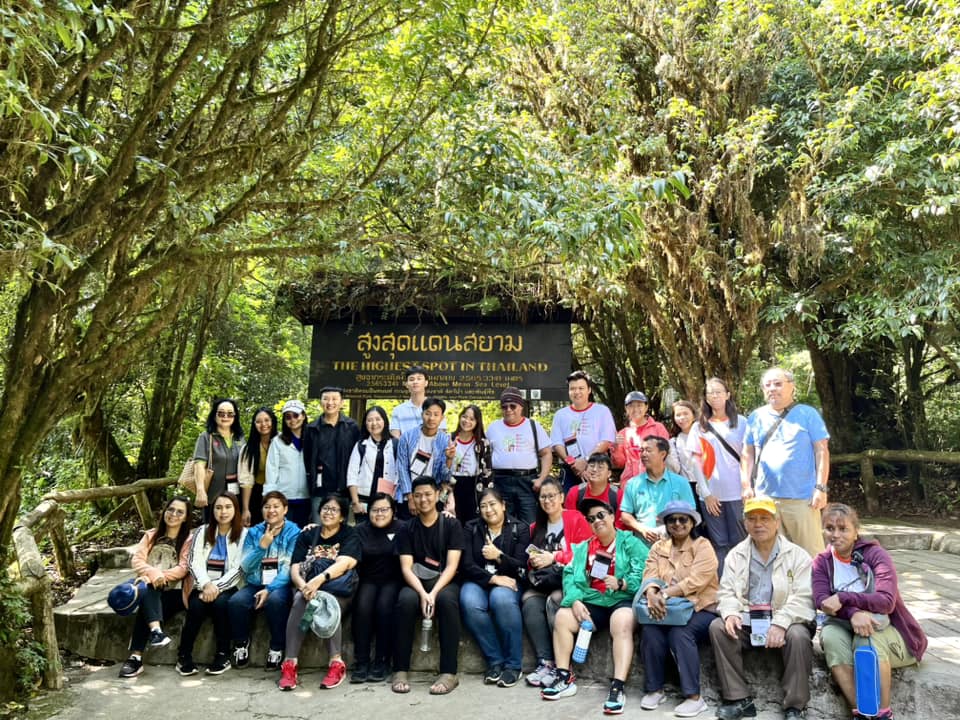 | 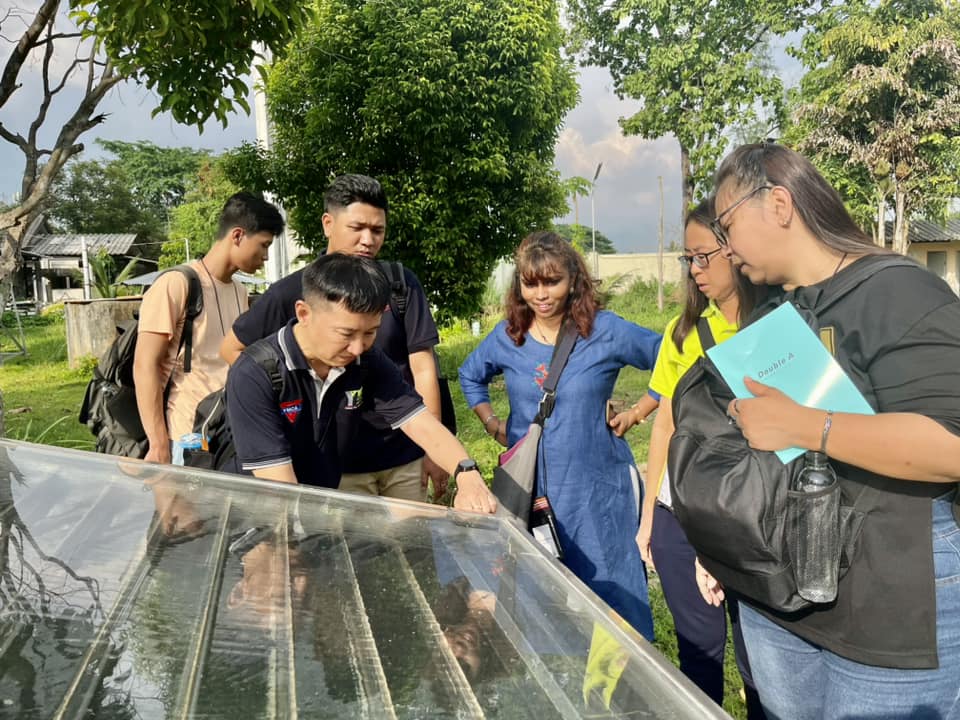 |
| ↑ Participants during their nature trail at Doi Inthanon National Park | ↑ Visit at Maejo University School of Renewable Energy |
In preparation for the participants discussion and planning session, Narupacha Muang-in, APAY Green Team Member and Head of Climate Change Education Program, Sao Hin YMCA, Thailand presented guidelines on how to design climate change actions. APAY Executive Secretary Maria Cristina Miranda also shared the fund sources that could be tapped by Green Ambassadors for the implementation of their projects. Through these inputs, the training also facilitated small group discussion and sharing of experiences on local/national observed effects/impacts climate change. The proposed projects were presented by each team during the last day of the training.
As a conclusion, APAY General Secretary Nam Boo Won gave an encouraging message to continue to work together to address the climate crisis. The training was co-organized by APAY with its Green Team and Sao Hin YMCA.
By: Maria Cristina Miranda, APAY Executive Secretary
My Learnings at the 39th Advanced Studies Course by Eriko Yanagihara
Last Updated (Wednesday, 31 May 2023 10:48)
Motivations and Expectations for Participating in the ASC
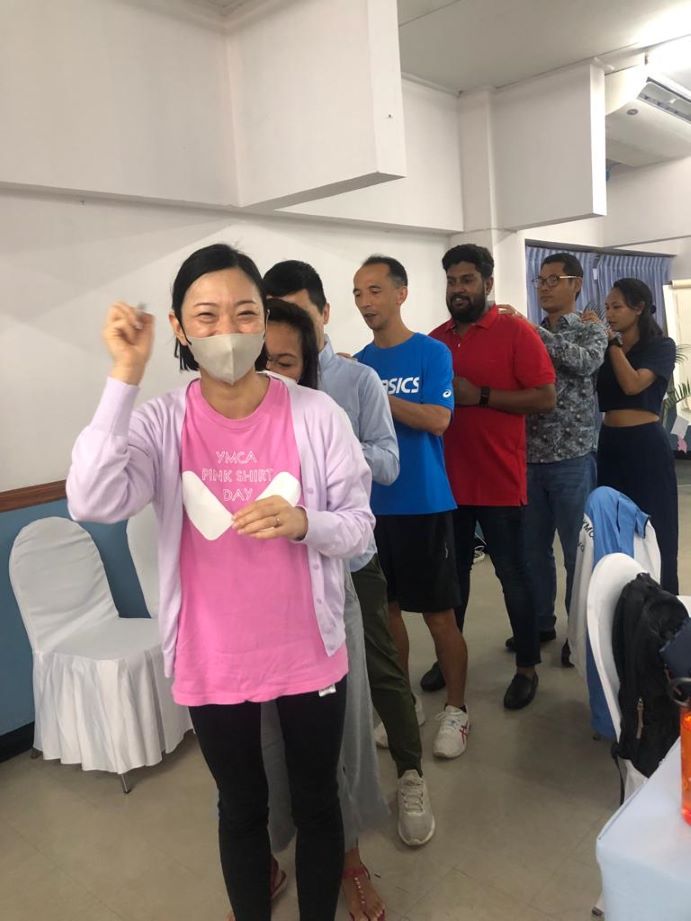 My motivation for participating in Advanced Study Course was that, as a staff of global and local community services, I wanted to promote the various activities of the Yokohama YMCA's projects in order to collaborate with the YMCA movement in the world, especially in the Asia-Pacific region, and to enhance the qualities (knowledge, skills, experience, and network) of the YMCA staff needed for this purpose.
My motivation for participating in Advanced Study Course was that, as a staff of global and local community services, I wanted to promote the various activities of the Yokohama YMCA's projects in order to collaborate with the YMCA movement in the world, especially in the Asia-Pacific region, and to enhance the qualities (knowledge, skills, experience, and network) of the YMCA staff needed for this purpose.
I also hoped to learn more about the social issues that arise due to the diversity and vulnerability of the Asia-Pacific region and to learn from the opinions of other participants on how YMCA can face and tackle these social issues.
A deeper understanding of our mission and Vision 2030 is essential for this. Through the ASC, I hoped to broaden my perspective and gain leadership skills to accept diverse values and advance the YMCA movement from new perspectives.
Building community
For the first, we started to know each other by sharing “Life Journeys.” It was a step forward in learning more about the people we will study with. It helped us to experience firsthand the diversity of each participant's background, relationship with the YMCA, and faith. It was also an excellent experience for the participants to take on roles such as daily worship, moderator, and documentation to manage the training schedule.
Since the YMCA is an ecumenical movement with diverse denominations of Christianity and non-Christians, we learned how to create worship that transcends differences in faith, brings us together, and unites our hearts through worship. I was used to the pattern of worship at the church I usually attend, but I learned that there is more than one way to create worship and that because the YMCA is an ecumenical organization, it is possible to develop worship in many different ways.
As the training progressed, through the lectures and discussions with participants from different countries, I gained a realistic sense of the diversity of the Asia-Pacific region. Despite the diversity and differences, all YMCAs share common challenges, and this was an opportunity to learn how to develop the YMCA movement in the diverse contexts of Asia.
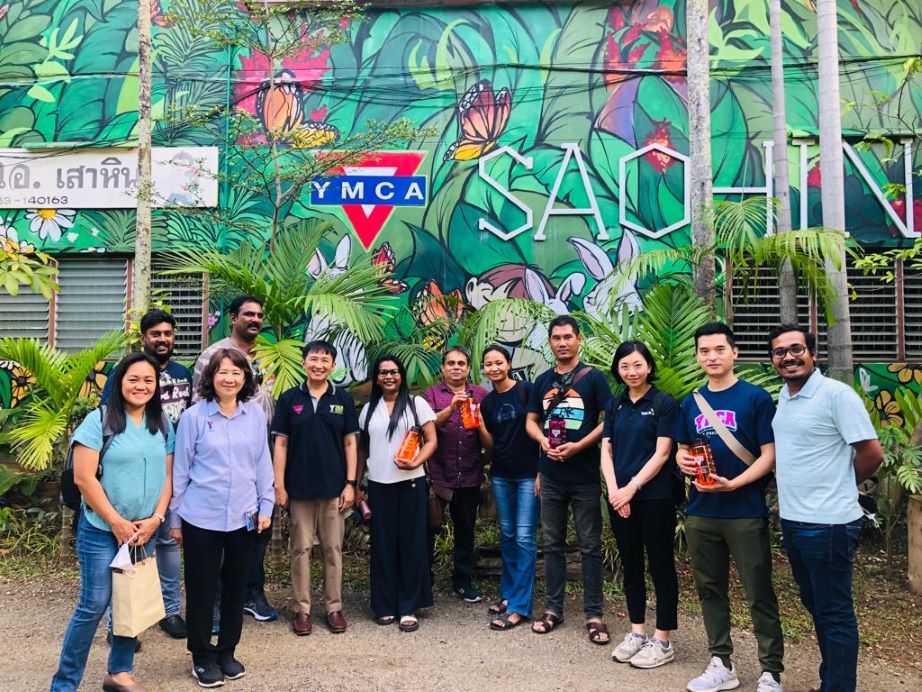
Contemporary Christian theological perspective & YMCA Mission
Learning about the mission initially was very important for the rest of the training because everything involved in the YMCA movement is based on the mission.
Mr. Nam boo won, General Secretary of APAY, pointed out that we should not try to understand the YMCA mission as it is but need to read it in each of our contexts, in the diversity of our contexts.
We also learned that the YMCA is not an issue-oriented organization that takes a holistic approach to society and people.
To strengthen our YMCA movement, it needs to be biblically faith-based and socially relevant.
We can learn our mission from the history of the YMCA, through Paris Basis, the Kampala Principles, and Challenge 21, and by understanding our context from a cultural, historical, political, and economic perspective about our region.
VISION 2030 and contemporary social realities & Alternative Responses
There were lectures such as; Gender Justice, Climate change, Interfaith Dialogue and Cooperation, and Peace Building & Conflict Resolution.
Each lecture was specific and practical and provided an opportunity to think about how to face these social issues in my community. It was an excellent opportunity to hear from experts working in the field, which led to a deeper understanding.
Although there are differences in the issues in each country and region, we were able to think together about how YMCA can respond to these issues in the context of a global problem.
Youth Leadership and Empowerment
It was important and meaningful to discuss the YMCA as a movement and the involvement of youth, along with learning about social issues. This is a topic of great interest to me because of my experience of being empowered by the YMCA from my youth days until now.
We reaffirmed that the YMCA is a youth-focused organization and that its role is to impact society to create a better society, still for youth, by youth, and with youth. We must constantly ask ourselves whether the familiar words "empowerment" and "youth leadership" have become one-sided impositions.
Movement strengthening
It was a good opportunity to look at my own YMCA from the perspective of organizational management. I learned about strategic planning with a long-term view, relationship building with lay leaders, and the good governance needed to put the YMCA mission into practice. In discussions with other participants, issues such as weak governance and little participation by lay leaders were raised, providing an opportunity to learn the reality of the difficulties in strengthening the organization.
Contextual programme response, Evaluation & Graduation
Through our studies at the ASC, we developed a re-entry plan that we will implement upon our return to our own YMCA. I had been trying to figure out the community's social issue that the YMCA should address. Throughout this process, I found all the learnings of the ASC very useful, and I realized that I had changed my mindset more than ever as a promoter of the YMCA movement. Creating the re-entry plan was very difficult, but seeing all the other participants taking it seriously and advising each other was encouraging. When each student's presentation was completed, critiqued, and awarded a certificate of completion, I felt a sense of accomplishment but also a sense of sadness that the ASC had come to an end. It means that we could spend such an intense and fulfilling training period.
It is very reassuring to think that even after the ASC is over, my friends who studied with me for a month still work hard with YMCA spirit in their respective countries.
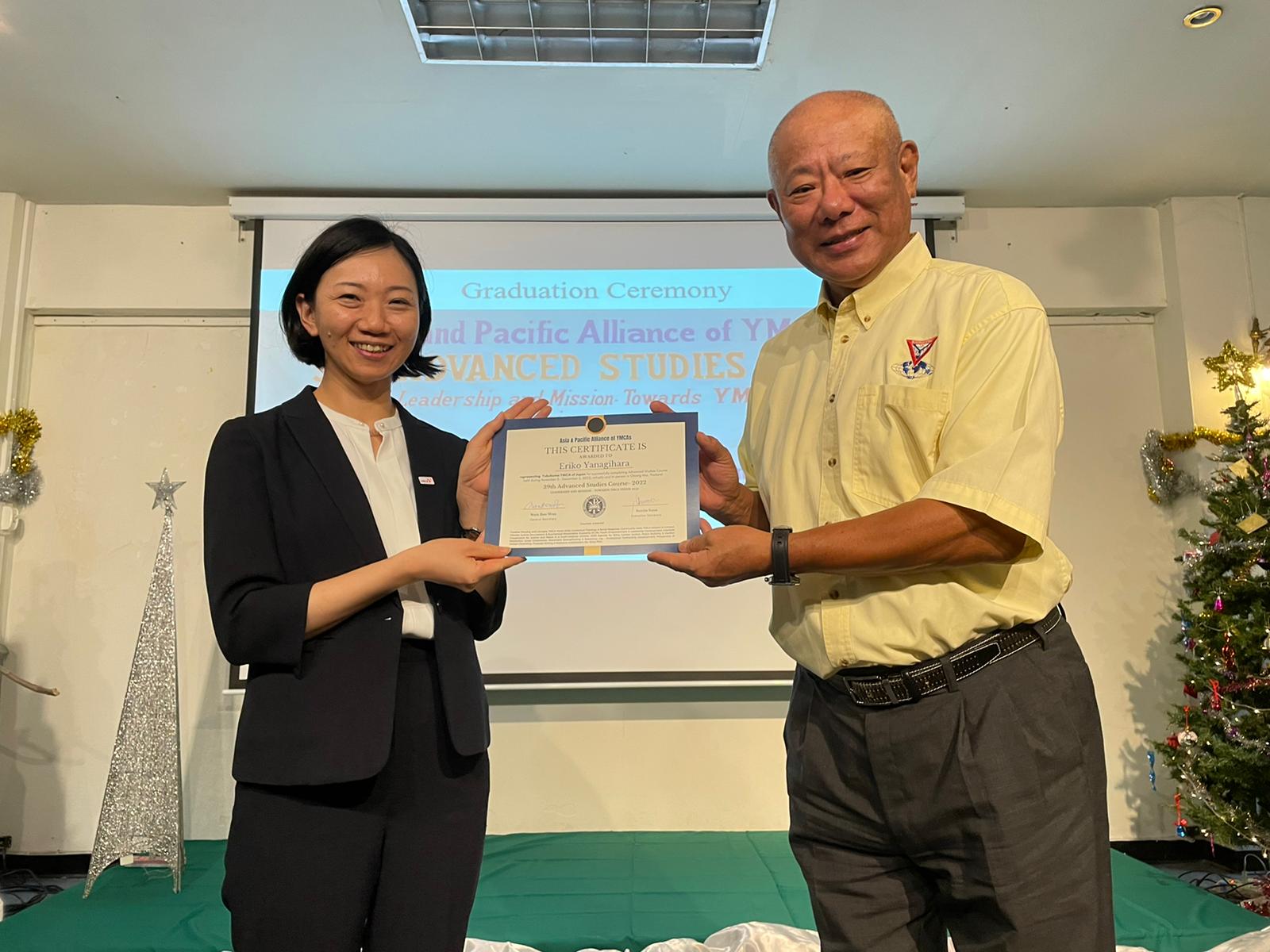
For the future
I learned the importance of never being satisfied with the status quo and always continuing to change for the better.
Remembering the lesson that the YMCA is an organization by youth and for youth and that the YMCA mission should be practised in a way that is in line with the region and the times, I would like to promote the YMCA movement in Japan and Yokohama.
I want to contribute to the YMCA's strength (strengthening the YMCA organization) by communicating how YMCA projects and activities rooted in the local community are connected to global social issues.
I will promote the YMCA movement in the global and local community services of the Yokohama YMCA, using the network established at ASC.
I will make it more important than ever to communicate the mission of the YMCA so that we can work in the same direction to promote Vision 2030 globally, in the Asia-Pacific region, in Japan, and Yokohama.
With gratitude
Finally, I would like to express my gratitude to the Yokohama YMCA and the National Council of YMCAs of Japan for sending me to participate in the ASC, to the laypersons and colleagues for their encouragement, and to my family for their support and endurance during the half month without their mother.
Also, a lot of appreciation to the APAY staff for preparing and arranging all the training and taking good care in its execution, as well as all those who provided sufficient knowledge and experience as resource persons.
I want to thank my fellow participants in the training with me for their patience, listening and trying to understand me despite my English communication difficulties. I thank God for allowing me to have such wonderful encounters and experiences.
By Eriko Yanagihara
Global & Local Community Services
Yokohama YMCA,
Participant of the 39th ASC
Waste Management Project by YMCA Cuttack
Last Updated (Tuesday, 30 May 2023 16:15)
To create awareness about the re-usage of waste amongst the people living in nearby slums and the local ward, YMCA Cuttack launched Waste Management Project on 28.04.2023 in association with SwitchON Foundation. A seminar was organised regarding managing waste from kitchens and households by segregating dry and wet wastes and making valuable objects from plastic debris, i.e., disposable water bottles, glasses, plates and bowls, and other indecomposable plastic materials. Above 150 women attended the seminar, out of which municipality sweepers and municipality volunteers were also present, apart from women staying in local slums. On this occasion, Rev. Kishore Chandra Digal offered a word of Prayer for the project’s success.
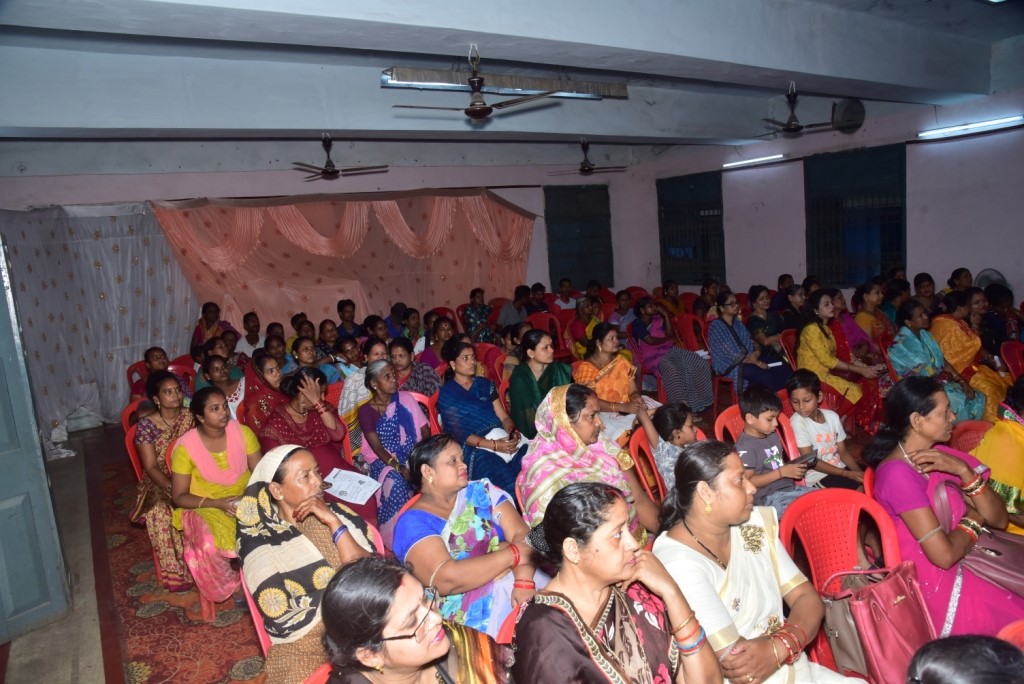 | 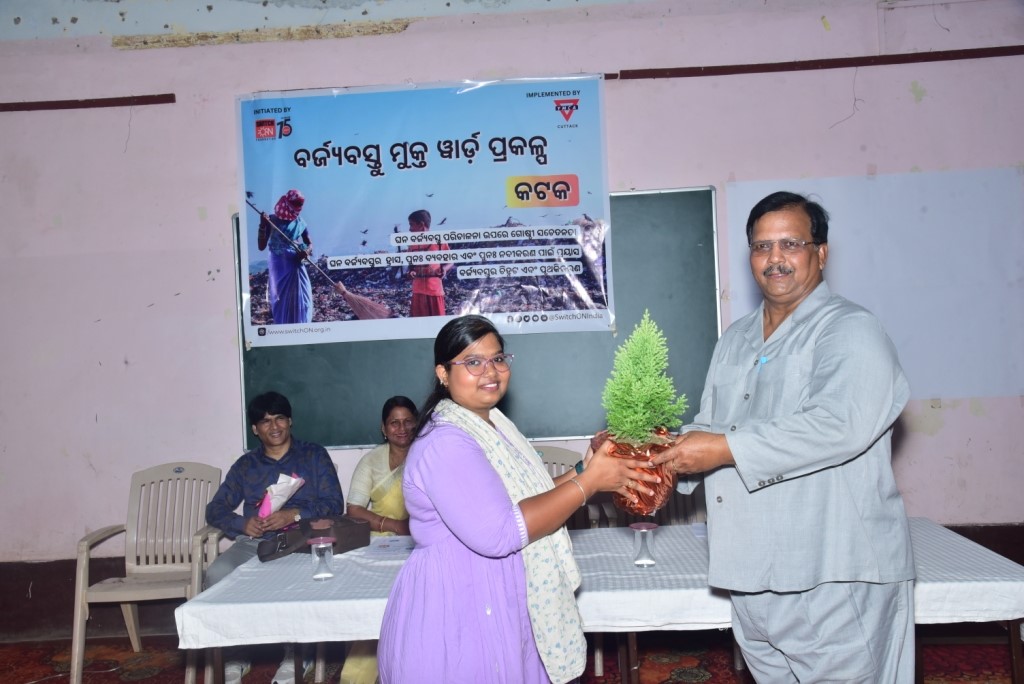 |
“YMCA Manila Gives Hope to 100 Mothers” - Youth-Led Solutions Initiatives for Future of Work
Last Updated (Tuesday, 30 May 2023 11:44)
During the pandemic, society became more demanding in all aspects and dependent on technology.
With the combined efforts of the YMCA of Manila, Inc., Accenture and the Philippine Business for Social Progress (PBSP), the threat of the society due to the pandemic was converted into an opportunity to work and get along with the demand of the economy through a project called “Nanay’s in IT”.
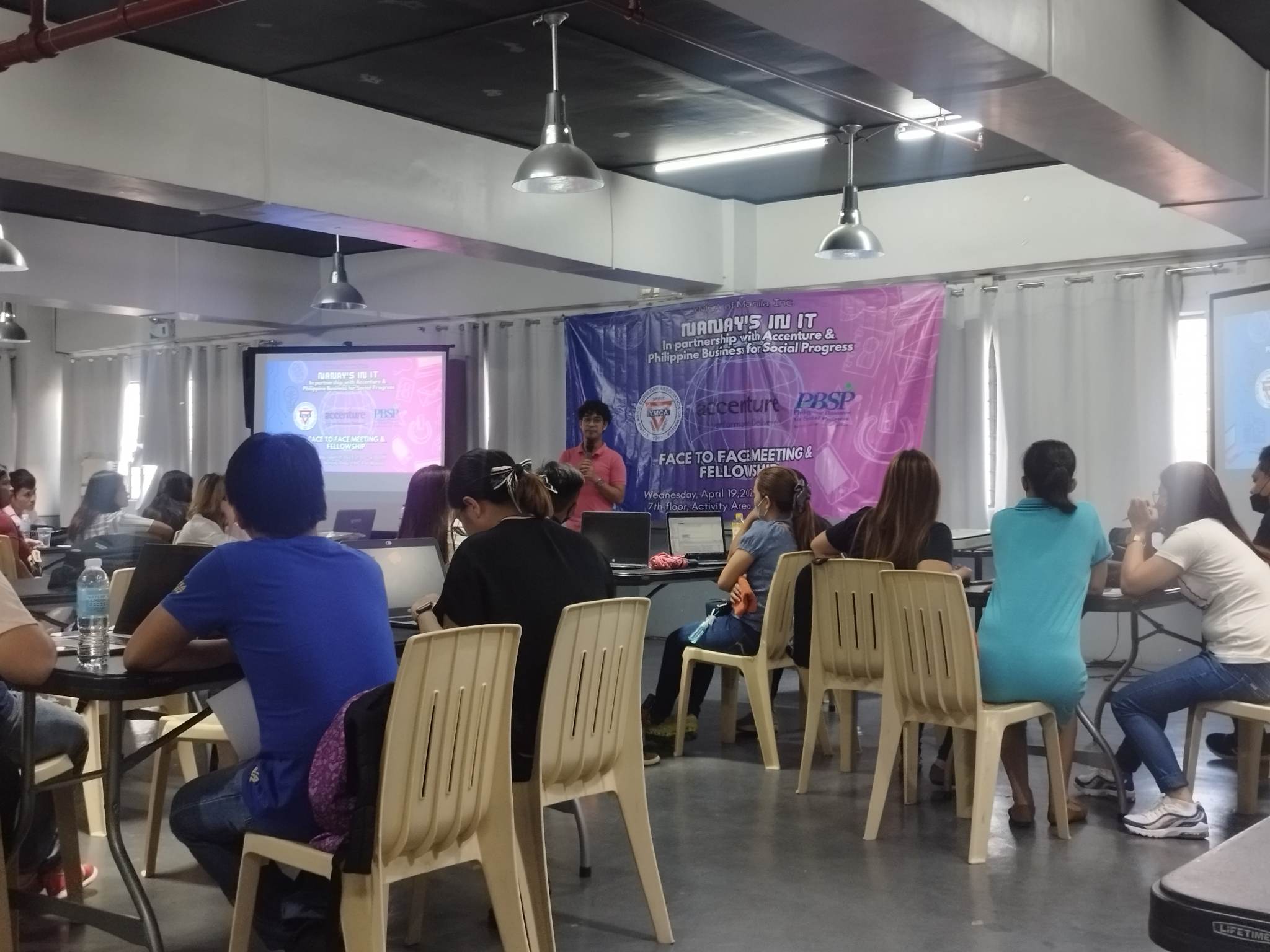 | 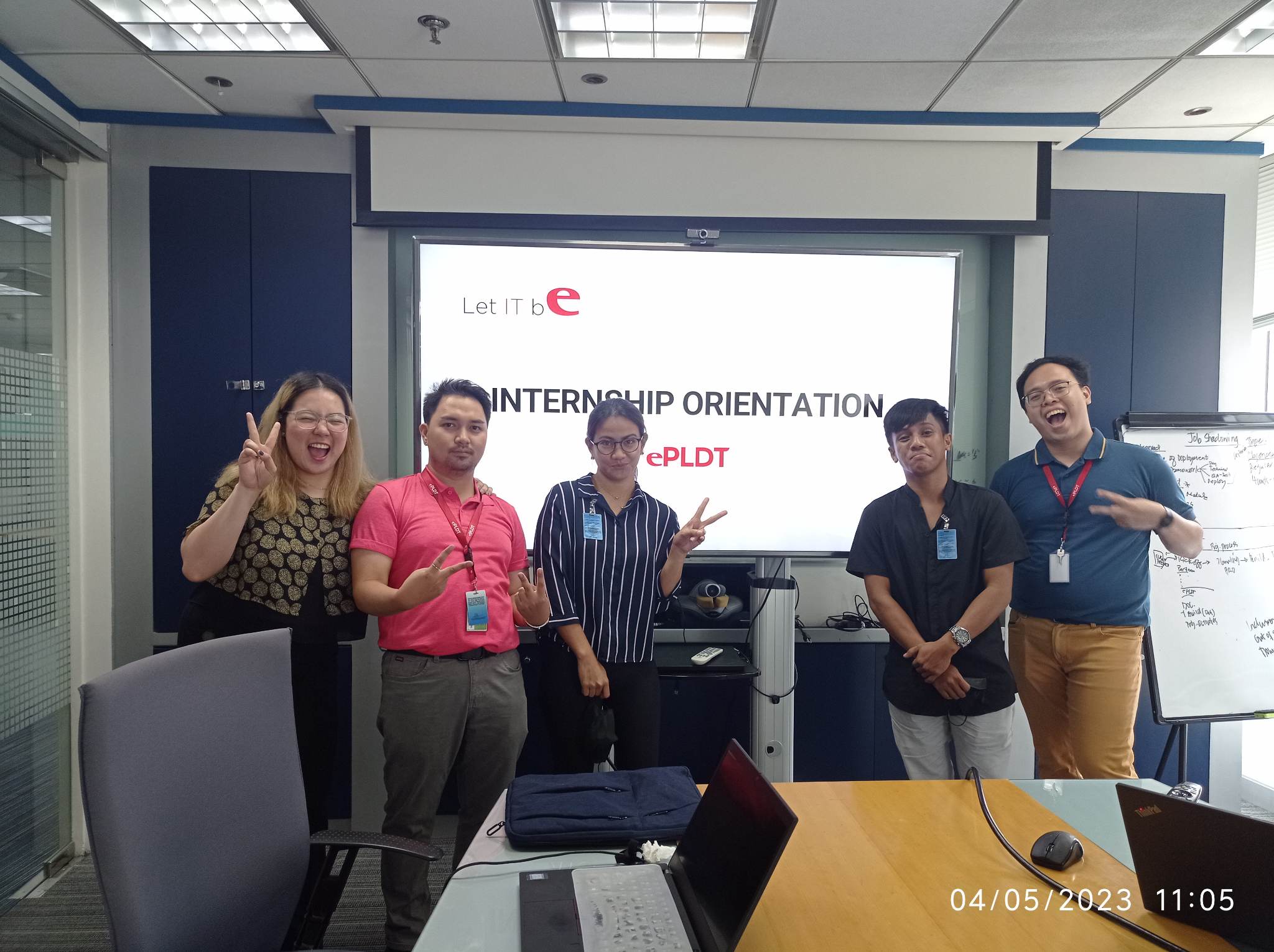 |
The Nanay’s in IT is an upskilling program with the purpose of helping members in the indigent communities to acquire Information Technology (IT) - focused skills and prepare them for jobs in IT companies. Its overall goal is for the learners to have sufficient knowledge and experience regarding IT skills, pass certification exams, be employed in IT companies, gain higher earnings, provide better support to learners’ families and inspire their communities to improve their lives. The project was composed of online learning, practical application/On-The-Job-Training (OJT), certifications and further education. The participant is called “Learners”.
A learner is identified as “Nanay”, a Filipino word that means MOTHER in English. They are chosen because they have a responsibility to themselves and their families. The participants are adults ages 18 to 35 years old who are not necessarily female or mothers in particular but by nature. They can be the breadwinners of the family. Another qualification must be an undergraduate who struggles to return to school because of the continuous unavoidable responsibility to the family. The learner must not have previous employment in high-paying companies with positions as a call centre agent, sales agent, insurance agent, etc. The learner’s employment experience is preferably from a blue-collar job, online seller or the like.
Currently, 45 learners are taking their OJTs in some of the large companies in the Philippines, such as Accenture, 2go, SM, PLDT, Meralco and the like. At the end of the program, YMCA, PBSP and Accenture are working hand in hand so that the learners will get employed or absorbed by their OJT site or to any other companies. Through the program, they have gained the confidence and certain competency to work and land in a regular job. The program runs from October 2022 – 2023.
Meanwhile, the Nanay’s in IT is one of the continuous plans of the Success Academy project developed by the Youth Leadership & Development Committee of the YMCA of Manila funded by the World Alliance of YMCAs through the seed grant of Youth Led Solutions Initiatives Summit for Future of Work. The Success Academy is the anchoring model of the Nanay’s in IT towards working on initiatives pertaining to Future of Work.
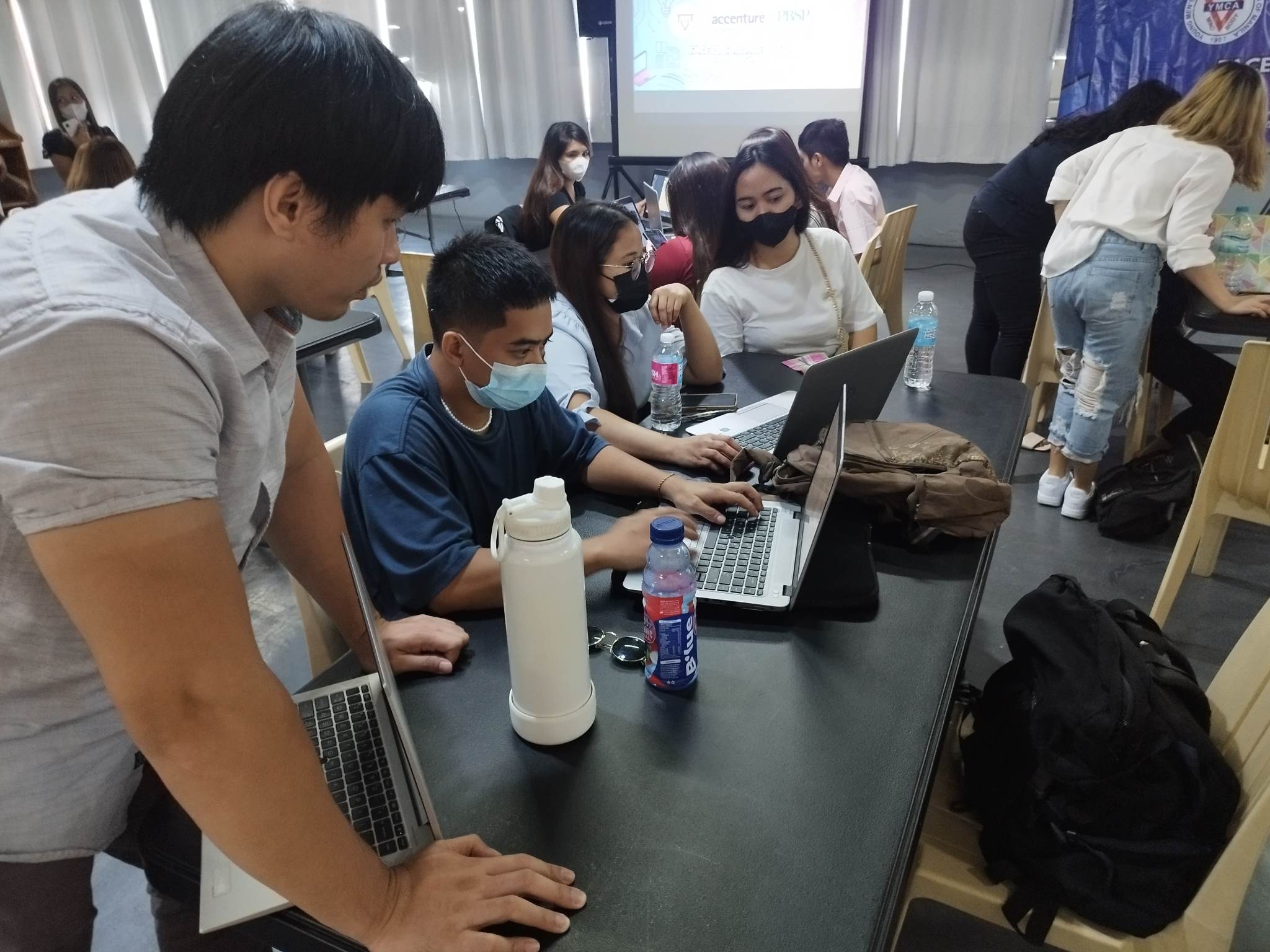 | 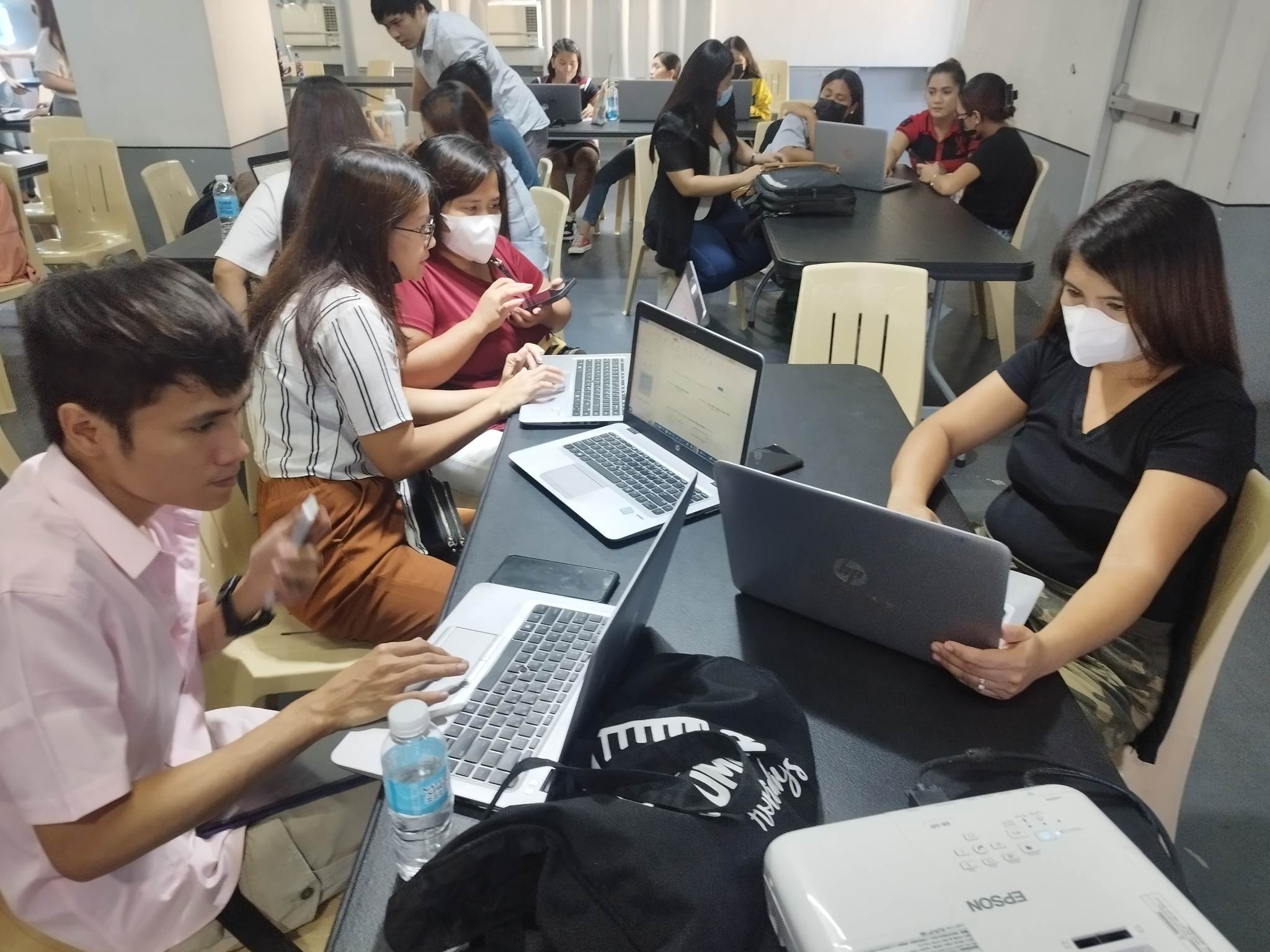 |
The Success Academy developed a module called “A Guide to Get Hired” which aims to help the youth define their own meaning of success by providing them with situations, realistic expectations, training for upskilling, mentoring, and coaching. The Success Academy has produced 62 beneficiaries. The content of the modules are Success Definition, Personal Branding, Job Application & Interview, Rest & Mindfulness, Financial Management, Continuous Learning Session and Elective Module on Free review of Civil Service Eligibility Examination with Mock Test. The mode of learning were combinations of Online & Face-Face Mentoring, Simulations and Immersion. The program was held from May 2022 – February 2023.
During these times when the economy is unstable, we intend to lend a helping hand and equip the new generation of professionals with focus and courage. The totality of the program is for every individual to dream and define for their own success with the help of different doors that will shine in front of them. Everyone must be presented with various opportunities to ultimately realize it. The YMCA of Manila will still inculcate the value of dedication for it is not a guaranteed sprint but a marathon journey for them. Through various efforts, there will always be a hope that it is not yet the end of the line for them.
By: Ivory C. Manio
Related Secretary for Community Development & Special Projects
YMCA of Manila, Inc. - Philippines
Read more...
Page 5 of 40

 Who we are
Who we are


